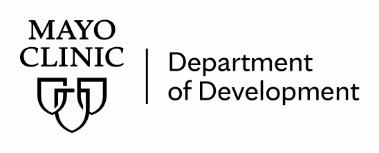2022 Heart Month Challenge
Thanks to generous benefactor support, Mayo Clinic is a world leader in cardiovascular research and patient care. During National Heart Health Month, your gift to advance prevention, detection, treatments and cures of heart-related conditions has twice the impact.

Seventy years ago, open-heart surgery was a dream. In 1952, a team of Mayo Clinic doctors, researchers and technicians set out to change that, developing and testing a heart-lung machine that allowed them to surgically repair defects in a patient’s heart while the patient’s oxygenated blood continued to circulate. They not only achieved their goals — successful heart repair and surviving, healthy patients — but also changed medicine.
Pioneering open-heart surgery is only one example of how Mayo Clinic is a category of one in the field of heart health. Today, Mayo Clinic doctors, researchers and technicians are still leading the way to translating scientific discoveries into leading-edge therapies, improved detection and prevention, and better patient outcomes.
But for all the progress we’ve made, there’s still much more work to do. Heart disease remains a leading cause of death globally. In the United States, it is the single leading cause of death for both men and women, and for people of most ethnic groups.
February is National Heart Health Month. This month, the Heart Month Challenge will double the impact of your gift to advance cardiovascular research and care at Mayo Clinic.
The Cardiovascular Research Center at Mayo Clinic is a world leader in advancing innovative therapeutics and novel diagnostics to prevent and treat cardiovascular disease. It also facilitates patient care, including access to numerous clinical trials and studies led by Mayo Clinic scientists. But the Cardiovascular Research Center is far from the only place where advances are being made in the improvement of heart health.
At Mayo Clinic’s Center for Regenerative Medicine, researchers are finding new ways to harness the body’s own healing power to restore the health of patients who have experienced heart attacks, coronary artery disease, congestive heart failure and other conditions. These new approaches include harnessing the potential of stem cell and cell-free therapies to repair damage to the heart.
At the same time, two decades of research spearheaded by Michael J. Ackerman, M.D., Ph.D., director of the Windland Smith Rice Genetic Heart Rhythm Clinic at Mayo Clinic, has shown that genetic heart conditions — even ones with the potential to cause sudden death — need not be a game-ender for young athletes. In fact, with properly managed care, Dr. Ackerman says, “Young people with genetic heart disease can grow up and dream big. Such athletes will be able to reach for the highest level of Olympic and professional sports.”
Mayo Clinic’s leadership in heart health research and care is unparalleled. But like everything at Mayo Clinic, it all goes back to benefactor support. Please help us make more progress, in 2022 and beyond, by taking advantage of the Heart Health Challenge. Until midnight, February 28, . Heart disease affects so many of us. Please give generously so that together, we can continue making advances to improve health and save lives. Thank you.
